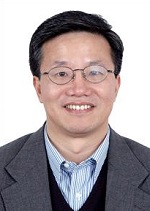 |
| Innovent CEO Michael Yu |
Innovent Biologics has raised $100 million in venture cash in hopes of becoming the premier maker of biotech drugs in its native China, advancing a pipeline of biosimilars and proprietary treatments.
Chinese VC Legend Capital led the round, joined by founding investors Eli Lilly ($LLY), Fidelity Biosciences, Fidelity Growth Partners Asia and Frontline Bioventures. With the money, Innovent plans to hit the gas on its pipeline of 10 monoclonal antibodies--6 proprietary and four biosimilar--with two candidates slated to enter the clinic this year.
Innovent's keeping the majority of its pipeline under wraps for now, disclosing just three candidates: IBI301, a knockoff of Roche's ($RHHBY) top-selling Rituxan; IBI303, a TNF blocker in the vein of AbbVie's ($ABBV) blockbuster Humira; and IBI302, a novel bispecific antibody in development as a cancer therapy. At the same time, the company has partnered up with the antibody specialists at Adimab, crafting early-stage treatments with the goal of building out its pipeline.
The other half of Innovent's business model involves partnering up with global drugmakers looking to crack the Asian biologics market. The Shanghai-headquartered outfit has an R&D and manufacturing campus up to FDA and European muster, Innovent said, and the company is in the process of expanding its capacity. That project has been in the works since Innovent closed its $25 million B round in 2012, and the company believes its facility will be China's largest FDA-compliant biologics operation once the process is complete.
The plan now is to keep both arms moving along in tandem, advancing candidates into the clinic while ramping up manufacturing infrastructure. By the end of the decade, Innovent hopes to have grown into a fully integrated biologics player in Asia, churning out its in-house products while shepherding foreign players onto the market. And, within 5 years, CEO Michael Yu expects his company to have at least one drug on the market and more in Phase III trials.
"Innovent is focusing on the quality," Yu wrote in an email. "We want to develop products that will have the same quality as (Big Pharma) expects, and the facility we have built to be in compliance with international standards so that the products manufactured in our facility could be potentially marketed outside of China," including in the U.S. and Europe.
Meanwhile, thanks to changing regulations and a looming biotech patent cliff, the global market for biosimilars is poised to boom. According to a report from Allied Marketing Research, worldwide sales for copycat biologicals will reach $35 billion by 2020 after scraping together just $1.3 billion last year, as more and more blockbusters come off patent.
And, on the proprietary side, Innovent's fundraise illustrates a growing trend in biopharma: While Western outfits have long been interested in China's commercial appeal, more and more drugmakers and investors are prizing the country's R&D capabilities. Merck ($MRK), Sanofi ($SNY) and Novartis ($NVS) are among the many to blueprint standalone research hubs in China, while venture outfits including OrbiMed have turned a particular focus to biotech startups in the region.